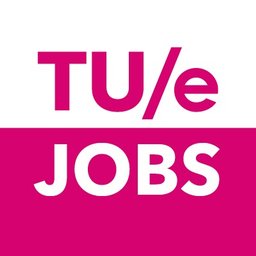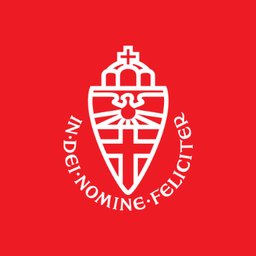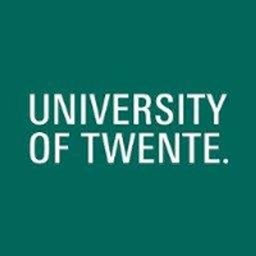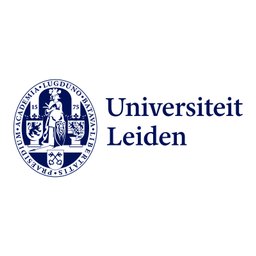Job Opportunities in Netherlands

September 18, 2024
TU Eindhoven
Eindhoven
OTHER
2 PhD positions at Eindhoven University of Technology within the HyUSE project
Job description
The Hy USE consortium is a public-private partnership comprising 8 universities, 5 universities of applied sciences (HBO), 3 research institutes, and 14 industrial partners. A good balance between fundamental R&D activities and applied research is realized by including research institutes and industrial partners in the execution of the work plan. The industrial involvement guarantees focus on relevant use cases.Structure and tasks of the Hy USE program.
The consortium combines a strong mix of the required knowledge and expertise on technologies, modelling capabilities, tools, and experimental facilities. There already exists a high-quality, national ecosystem for testing and validation; the various facilities complement each other and enable research and development from (micro-)component towards system level.
The Ph D positions at TU/e will focus on the application of H2 in Internal Combustion Engines [Ph D1] and on the modeling of H2 combustion and NOx formation [Ph D2].
[Ph D1] Currently all OEMs are developing H2 Internal Combustion Engines (H2-ICE) both Compression Ignition (CI) and Spark Ignition (SI). The advantage of H2 in SI engines is the ability to run very lean (much more air than needed) because of the high flame speed of H2. Ultra-lean operation leads to ultra-low NOx emissions. However, at some point the flame-speed becomes the limiting factor. To extend the lean limit, pre-chamber technology (see the figure) is an option. In this Ph D project, a proof-of-concept demonstration is targeted. Your task is to design and test a pre-chamber on our single-cylinder platforms, a fully metal and an optically accessible version. The latter allows the application of advanced fast optical diagnostics to understand the technology in greater detail and provide datasets for the validation of CFD models. Engines and optical equipment are available in our state-of-the-art Zero Emission Lab.
[Ph D2] This Ph D project will be focused on the development of computational models for the numerical simulation of H2 combustion processes and the prediction of NOx emissions. For industrial applications, computational fluid dynamics (CFD) modelling is often the only way to get detailed insights in the flow pattern inside a furnace, flame shape and dynamics, temperature distributions, heat transfer patterns, and NOx formation rates. The use of H2 as a (partial) replacement of NG leads to technical, and operational challenges, but it also introduces modeling challenges: The high diffusivity of hydrogen leads to significant changes in flame front structure, burning rates, NO formation rates, and ignition behavior. In this project you will investigate these so-called Lewis-number effects in H2-NG jets that are injected into high-temperature environments consisting of air and combustion products. Detailed chemical kinetic studies will be performed to study flame structure and NO formation pathways under these conditions. The effect of turbulence on the flame front will be investigated using direct numerical simulations. Based on the results of these detailed studies, reduced-order models will be developed for turbulent combustion. The FGM tabulated chemistry method developed at TU/e will be extended to account for Lewis number effects and NOx chemistry in these non-premixed systems. This new model will be validated against the experiments performed in the other tasks. After its validation, the model will be applied to more realistic systems in collaboration with the industrial partners.
Job requirements
We are looking for talented, outstanding Ph D candidates with an M.Sc. degree in Mechanical or Aerospace Engineering, Physics, or a related field, with a background and/or interest in thermofluids engineering and combustion applications, and with a good command of the English language. Furthermore, the candidate is a team player, who will work together with colleague researchers.Conditions of employment
A meaningful job in a dynamic and ambitious university, in an interdisciplinary setting and within an international network. You will work on a beautiful, green campus within walking distance of the central train station. In addition, we offer you:- Full-time employment for four years, with an intermediate evaluation (go/no-go) after nine months. You will spend 10% of your employment on teaching tasks.
- Salary and benefits (such as a pension scheme, paid pregnancy and maternity leave, partially paid parental leave) in accordance with the Collective Labour Agreement for Dutch Universities, scale P (min. €2,872 max. €3,670).
- A year-end bonus of 8.3% and annual vacation pay of 8%.
- High-quality training programs and other support to grow into a self-aware, autonomous scientific researcher. At TU/e we challenge you to take charge of your own learning process.
- An excellent technical infrastructure, on-campus children's day care and sports facilities.
- An allowance for commuting, working from home and internet costs.
- A Staff Immigration Team and a tax compensation scheme (the 30% facility) for international candidates.
Information and application
About usEindhoven University of Technology is an internationally top-ranking university in the Netherlands that combines scientific curiosity with a hands-on attitude. Our spirit of collaboration translates into an open culture and a top-five position in collaborating with advanced industries. Fundamental knowledge enables us to design solutions for the highly complex problems of today and tomorrow.
Curious to hear more about what it’s like as a Ph D candidate at TU/e? Please view the video.
Information
Do you recognize yourself in this profile and would you like to know more? Please contact the hiring manager prof. Bart Somers (l.m.t.somers@tue.nl) for Ph D1 and prof. Jeroen van Oijen (j.a.v.oijen@tue.nl) for Ph D2.
Visit our website for more information about the application process or the conditions of employment. You can also contact HR Services, email HRServices.Gemini@tue.nl.
Are you inspired and would like to know more about working at TU/e? Please visit our career page.
Application
We invite you to submit a complete application by using the apply button.
The application should include a:
- Cover letter in which you describe your motivation and qualifications for position [Ph D1] or [Ph D2].
- Curriculum vitae, including a list of your publications and the contact information of references.
- Transcript of grades.
We regret to inform you that this job opportunity is no longer available
Latest Job Opportunities
September 25, 2024
Tamarschool
Leerkracht voor de startklas (groep 1 en 2)
Den Haag
OTHER
View DetailsSeptember 25, 2024
Docenter
FREELANCE LEERKRACHT GEZOCHT – per 1 november
Den Haag
OTHER
View DetailsSeptember 25, 2024
Gro-up kinderopvang
Pedagogisch medewerker op het Meeuwennest
Zoetermeer
OTHER
View DetailsSimilar Jobs

September 23, 2024
Radboud Universiteit
Two PhD Positions: Testing a Mindfulness-Based Intervention for Distressed Romantic Couples
Nijmegen
OTHER
View Details
September 23, 2024
Universiteit Twente
2 PhD positions in “Recycling Process Analysis of Thermoplastic Composites”
Enschede
OTHER
View Details
September 24, 2024
Universiteit Leiden
Two PhD Positions: Multistakeholder Global Governance (Full-Time, 1.0 FTE)
Den Haag
OTHER
View Details
September 19, 2024
Telus Health
Freelance Psychologist (Eindhoven/Breda/Den Haag)
Eindhoven
OTHER
View Details
September 19, 2024
The Park Entertainment NV
Venue Coördinator Eindhoven
Eindhoven
OTHER
View DetailsNew Jobs from This Company

September 23, 2024
TU Eindhoven
Program Management Officer (0,6 - 0,8 Fte)
Eindhoven
OTHER
View Details
September 23, 2024
TU Eindhoven
Clinical PhD Position: Investigation on Fetal-Maternal Cardiovascular Coupling
Eindhoven
OTHER
View Details
September 23, 2024
TU Eindhoven
PhD Power Electronics Solutions for Grid Integration of Fast Charging Stations
Eindhoven
OTHER
View Details
September 23, 2024
TU Eindhoven
PhD on Modelling of Ultrafast Organic Optoelectronics Devices
Eindhoven
OTHER
View Details